MercoPress. South Atlantic News Agency
Tag: cocaine
-
Tuesday, December 31st 2024 - 09:43 UTC
Five suspects arraigned in death of former One Direction's Liam Payne

Argentine prosecutors Monday arraigned 5 people in connection with the Oct.16 death of former One Direction's British singer Liam Payne in Buenos Aires, which was ruled not a suicide.
-
Wednesday, July 24th 2024 - 08:30 UTC
Large amounts of cocaine found in Brazilian sharks
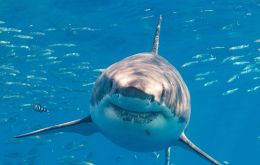
Researchers at the Rio de Janeiro-based Oswaldo Cruz Foundation (Fiocruz) found traces of cocaine in 13 sharks of the species Rhizoprionodon lalandii, popularly known as tubarão-bico-fino-brasileiro, cação rola rola or cação-frango, according to a study in the appearing this week in the journal Science of The Total Environment, Agencia Brasil reported Tuesday.
-
Thursday, July 18th 2024 - 10:55 UTC
Operation Sweetness, check your sugar when having coffee or tea
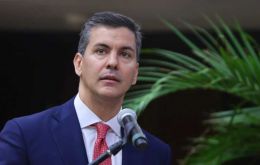
The discovery of cocaine and other hard drugs shipments to Europe from South American Atlantic ports is not new and despite all efforts, the network of contacts coupled with ingenious methods to adapt to circumstances and obviously a notorious degree of corruption, keeps information flowing.
-
Monday, October 30th 2023 - 08:32 UTC
Brazilian researchers developing vaccine against cocaine consumption

A Brazilian-developed vaccine against cocaine addiction is almost ready for public distribution. The drug, named Calixcoca, “would block the effects on the brain,” according to the researchers behind the project.
-
Wednesday, August 23rd 2023 - 10:49 UTC
Spanish Civil Guard seizes 700 kilos of cocaine headed to Europe via Canary Islands

Europol has supported the Spanish Civil Guard (Guardia Civil) in dismantling a criminal organization smuggling large quantities of cocaine from South America to the European Union via the Canary Islands. The operation also involved law enforcement authorities from Croatia, Italy and Serbia. The investigation identified a significant threat; criminal organizations' increasing ability to collaborate closely and deploy members to different locations for longer periods to enable large-scale drug trafficking. The international cooperation of law enforcement authorities across the EU was therefore crucial for intercepting the suspects and halting their criminal activities.
-
Friday, August 11th 2023 - 11:17 UTC
Major haul of cocaine in Rotterdam: eight tons in a shipment of Ecuadorean bananas

Ecuador again is headlines. Netherlands authorities have seized eight tons of cocaine in the port of Rotterdam, prosecutors announced on Thursday. The drug is valued at an estimated US$660 million and represents the biggest haul ever recorded at the port. The last biggest was a 4,500-kilogram haul made in 2020.
-
Thursday, July 6th 2023 - 11:13 UTC
Brazilian syndicate flooding Europe with cocaine, in fruit shipments, busted in operation led by Europol
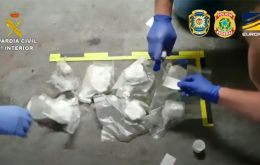
A number of actions have been carried out over recent months in Brazil, Spain and Portugal, with the support of Europol, to target the members of a Brazilian highly professional criminal syndicate flooding Europe with cocaine.
-
Wednesday, July 5th 2023 - 10:45 UTC
Secret Service finds cocaine in the West Wing of the White House
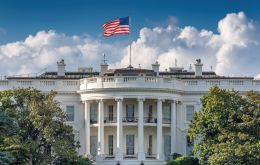
A white substance found inside the White House late on Sunday, that prompted a brief evacuation, tested positive for cocaine, sources told two news agencies on Tuesday.
-
Saturday, March 4th 2023 - 07:47 UTC
Argentine Customs create Uruguay River task force to tackle cocaine trafficking
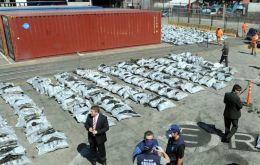
Argentina's Customs General Directorate created a department within its structure to monitor drug trafficking through the Uruguay River, it was announced Friday. The new task force will increase controls on regional transshipments where various containers featuring cocaine have been detected recently.
-
Wednesday, November 9th 2022 - 10:16 UTC
Brazil and Uruguay manage significant seizures of cocaine bound for Europe
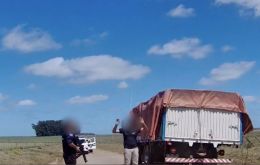
Brazil and Uruguay have been quite active in their combat against the drug trade. In Brazil in the northeast of the country, the state of Pará, Federal Police seized 2,75 tons of pure cocaine bound for Europe, which has been considered one of the largest drug seizures in a port.
